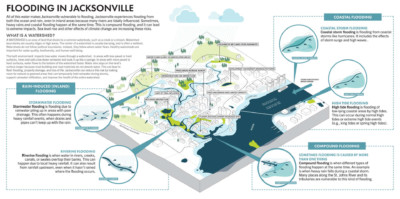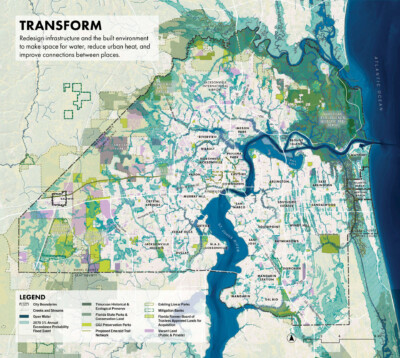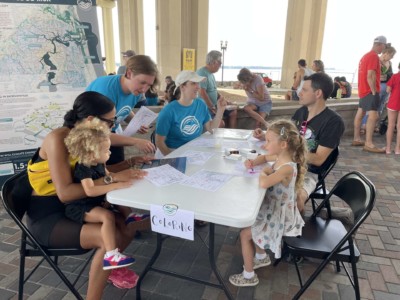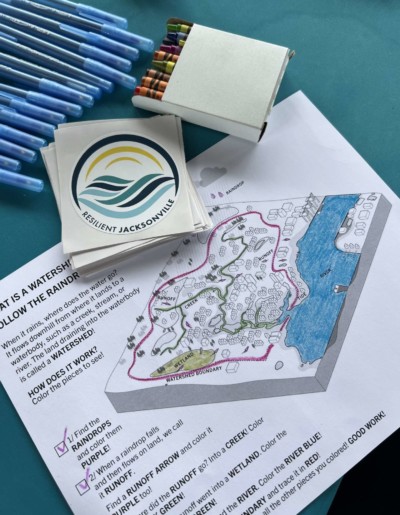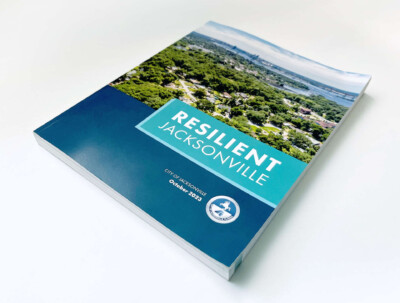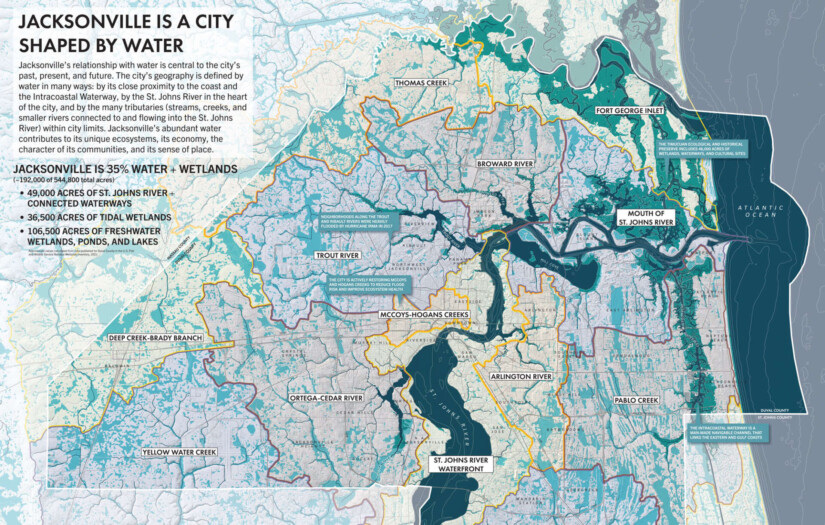Building on recent recovery efforts in the wake of Hurricanes Matthew and Irma, the City of Jacksonville launched the Resilient Jacksonville Strategy, a 50-year roadmap to prepare Jacksonville for climate change, population growth, and urban development. In collaboration with The Water Institute of the Gulf (as prime) and a multi-disciplinary team, SCAPE led community engagement efforts and helped develop the overall resilience strategy and graphic communication.
The largest city by area in the continental U.S., Jacksonville faces a challenging future: while its population is rapidly growing, it also faces a suite of climate-intensified risks—including flooding, heat, wind, and wildfires—that will only grow more acute in coming years. At the same time, the city’s history and economy has always been defined by its relationship to water, with port-city activity and communities intermixed between the St. Johns River, its tidal estuaries, and the Intracoastal Waterway.
In a series of topical working group meetings, SCAPE engaged with residents and stakeholders to communicate the potential risks and listen to community priorities. SCAPE used these working group meetings to inform the place-based strategies and a set of 45 suggested actions that the City and other organizations can apply to policies, projects, and programs. SCAPE aligned specific actions with various development patterns—such as “downtown,” “contemporary suburbs,” and “rural mosaic”—to maximize the impact of the actions across Jacksonville’s diverse landscape.
The final resilience strategy, informed by Structured Decision-Making methods and evaluated for measurable impacts, serves as a guiding force for the adaptation of infrastructure, policy, and city operations into the future.
Learn more:
Client
- City of Jacksonville, Florida
Collaborators
The Water Institute of the Gulf
Acuity Design Group (Engagement)
Halff Associates (Policy & Governance)
Fernleaf (Climate Data)
